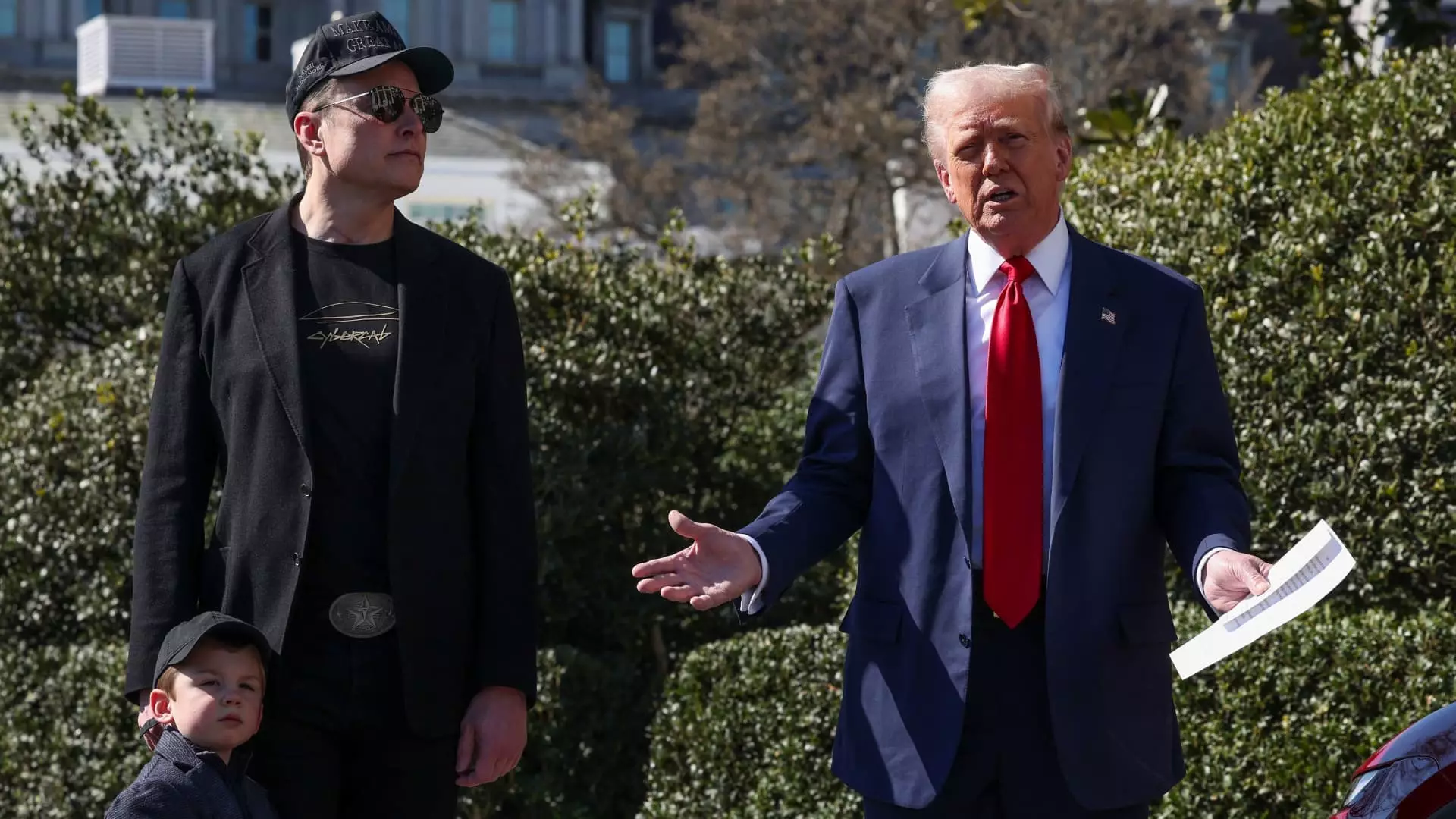In recent public statements, Donald Trump has vehemently denied any attempt to sabotage Elon Musk’s ventures, emphasizing his desire for “all businesses within our country to thrive.” However, beneath these optimistic words lies a complex web of political and economic motives that reveal a more nuanced, and arguably more cynical, reality. To accept Trump’s rhetoric at face value is to ignore the subtle but persistent efforts that threaten the innovation economy Musk represents. This dissonance between public posturing and underlying actions lays bare a fundamental flaw in the narrative—claiming a desire for success while simultaneously whittling away at the very foundations that foster growth.
The truth is that governmental support—whether through subsidies, contracts, or regulatory incentives—serves as both a catalyst and a shield for high-tech companies. But when those support mechanisms are threatened or selectively removed, the genuine intention isn’t to promote innovation but to consolidate political advantage. Trump’s insistence that he’s not trying to destroy Musk’s companies ignores the implications of the administration’s reviews of federal contracts, potential cuts, and the overt signals sent to federal agencies and defense contractors. These actions reflect a pattern more aligned with control and political retribution than with fostering an environment where Musk’s visionary firms can independently flourish.
Government Intervention: A Tool for Political Leverage, Not Policy Innovation
Musk’s companies—Tesla and SpaceX—are heavily dependent on government contracts and incentives. While this reliance demonstrates the importance of government support in technological advancement, it also exposes Musk to political risks. The recent efforts by the Trump administration to scrutinize and potentially cut back on federal contracts reveal a troubling trend of weaponizing taxpayer dollars for political gains. For instance, SpaceX’s $22 billion in federal awards since 2008 cannot be labeled as mere business relationships; they are part of a delicate political ecosystem where support can be withdrawn or reinstated to serve broader agendas.
Electing to shake up this ecosystem under the guise of improving efficiency undermines the long-term stability of Musk’s enterprises. It suggests that innovation is subordinate to political maneuvers, an attitude that could stifle progress rather than nurture it. By proposing to strip away some of Tesla’s credits and incentives—like federal electric vehicle benefits—government officials are, in effect, creating artificial barriers that could diminish market competitiveness. This is a shortsighted approach that protects entrenched political interests at the expense of American innovation and consumer choice.
The Myth of the Free Market: Government’s Hidden Hand in Musk’s Success
The narrative that Musk’s companies are purely market-driven is woefully incomplete. Regulatory credits and government incentives have played a pivotal role in Tesla’s rise, with $12.24 billion in environmental credits since 2015 lining Tesla’s profit margins. These incentives are not incidental; they are explicit, government-backed policies designed to accelerate environmental goals, but they distort true market dynamics. When policymakers threaten to eliminate these supports, they risk undermining the very environmental progress they aim to achieve.
Moreover, Musk’s ventures are intricately intertwined with federal agencies overseeing defense, space, and technological development. The contracts and funding Musk’s companies depend on not only reflect his technological prowess but also showcase the government’s reliance on private sector innovation for strategic interests. Any political move to curtail or manipulate these programs is less about economic efficiency and more about asserting political control, which could have chilling effects on the next generation of innovators who see government support as necessary for breakthrough advancements.
The Broader Implications: Political Puppeteering vs. Genuine Innovation
The repeated attempts to paint Musk as a political adversary—highlighted by clashes over a supposed “big beautiful bill” or accusations of ties to controversial figures—are less about policy and more about politically motivated character assassination. Such tactics divert attention from the real issue: that government involvement in high-tech industries is a double-edged sword.
Supporting innovation through strategic partnerships and incentives can deliver immense national benefits. However, using these tools as leverage or punishment, as recent developments suggest, risks turning the landscape into a political battleground rather than a fertile ground for radical ideas. If government actions become unpredictable or retaliatory, entrepreneurs like Musk will have little choice but to slow their daring pursuits, and the United States will lose its competitive edge.
In essence, the core flaw in Trump’s public claims is the assumption that advocacy for business success is incompatible with selective governmental interference. But the reality is that, in a center-right leaning system that values free enterprise coupled with strategic oversight, the line between fostering innovation and political manipulation is often blurred. Recognizing this complexity is crucial for anyone who truly cares about America’s technological future and economic strength.

